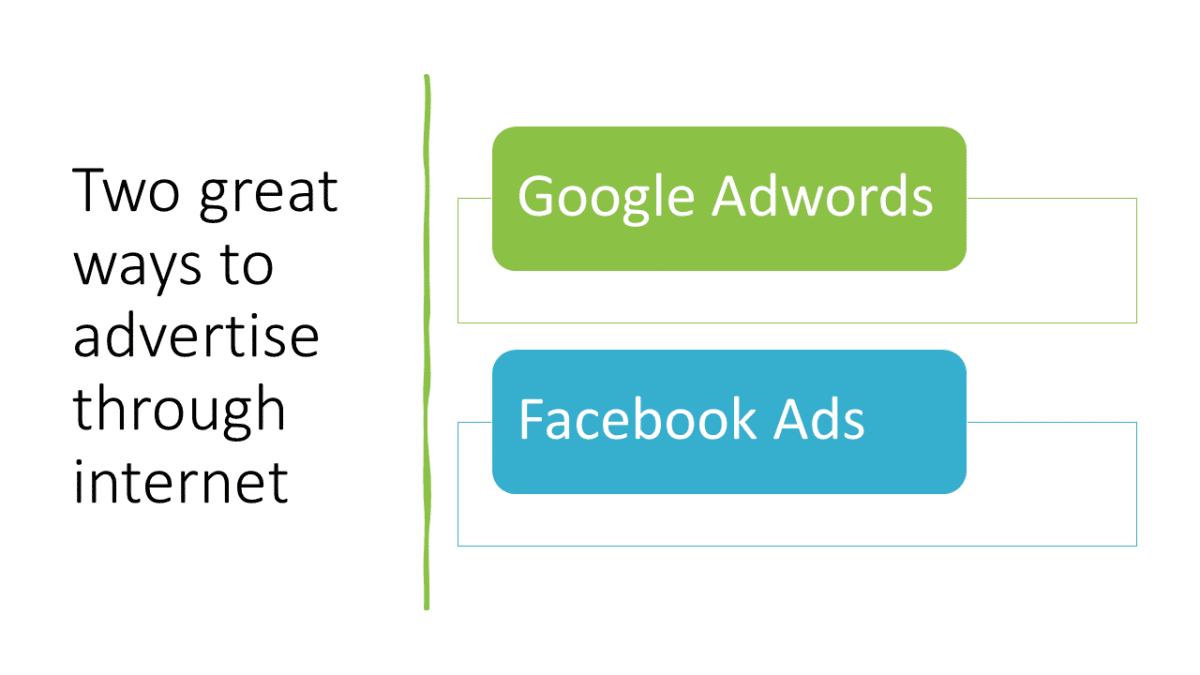Google Self vs. Social Self on Instagram/Facebook
In the early stages of the sales funnel, you are building awareness of your brand. It is important for your target market to be aware of your existence. The message needs to be spread.
There are two great ways to spread the word:
- Google Adwords
- Facebook Ads
Google Display Ads are the only ads we will use for this post and Google Search Ads are excluded.
Lower parts of the sales funnel are better suited for search ads. You know someone is looking for somewhere specific if they search for “Cheap flights to Paris”. A search ad mentioning “Cheap flights to Paris” has a high likelihood of getting clicked, so check out your landing page when the ad pops up.
In the customer’s journey, it’s a big deal if a customer is considering your products.
Here we will discuss how you can make your brand more visible on Facebook and Google with Display Ads.
Facebook/Instagram is your “social self”
Facebook/Instagram is your “social self”
Facebook and Instagram are primarily used to project this cheerful/upbeat persona. For instance. Pictures of great lunches are more likely to be posted than those of disappointing lunches.
You might also “like” a page or click on an upcoming event if a friend likes a worthy cause. It is okay for your friends to know about your interest. However, this is not the same as actually Googling the topic. Your social media persona is formed based on everything you do on social media.
On Google, you are your “real self”
Searching on Google tends to reflect our “real” selves. When it comes to researching anything, we turn to Google first. You cannot ask Google a stupid question (search query).
Educating ourselves is the first step toward contacting a professional. Patients who come to the doctor with numerous Dr. Google-based questions, for instance, can be tiresome to medical doctors. On the notice boards in medical examination rooms are articles like Dr. Google will see you now! So, if you don’t feel comfortable asking a human being a question, now you can ask Google without fear of judgement!
Display advertising business models
From the point of view of display advertising in this post, let’s compare the business models of Facebook and Google:
Business model of Facebook
In addition to connecting people, Facebook gives everyone a chance to share their opinions and feelings. As your “social self,” you generate revenue.
Every action you take on the platform generates data about your likes and dislikes and interests. Display ads can be targeted using demographics, geography, interests, and behaviors (including page boosts) by advertisers.
Marketing studies have shown that companies benefit from “likes” on their Facebook pages when ads are promoted through paid advertisements.
Business model of Google
The purpose of Google, on the other hand, is to help you find the answers you need. To find the best answer immediately, one needs to search the web.
Thousands of website owners share some of the revenue they generate from Google’s AdSense program for display advertising.
When people arrive on the content page, they see display ads. The importance of this point cannot be overstated. When setting up campaigns based on the large number of campaign settings and your goals, a display advertiser can show the ad on relevant websites. The data includes keywords, demographics, geography, and behavior, among others.
When clients see irrelevant ads on websites, they can be upset. In the case of a religious blog, it could be a part of machinery. Nevertheless! Religion is of interest to many manufacturers. A brand that is evoked in the mind of the customer will be at the back of his or her mind.
TV ads are similar to internet display ads
As far as Facebook and Google Display ads are concerned, they are like television ads. Only a few hundred TV channels are available to consumers with the most expensive TV channel packages.
In contrast, digital marketers can select from more than 2 million Google AdSense partner channels. The partners have their own audiences who view the content because they are interested in it.
They remember your ad when they see it. Your ad will be clicked by some, and you will have a web visitor that is so valuable to you. With AdWords and Google Analytics, all of this can be tracked.
Thus, you know which advertisement drove traffic or eCommerce sales to your site. TV ads can’t be done yourself!
There are 2.7 billion Facebook users worldwide, and each of them has friends. Social sharing is one of the benefits of Facebook ads when they are skillful. It is possible that your friends will look at another ad if you liked it.
Facebook Ad Manager makes tracking easy, and Google Analytics or other web analytics software can be used to track your web visits and eCommerce transactions as well. TV ads can’t be done by you
As long as you keep your target audience and budget in mind, TV ads are still relevant today. You can start running Facebook and Google Display ads for just $5 or $10 a day.




